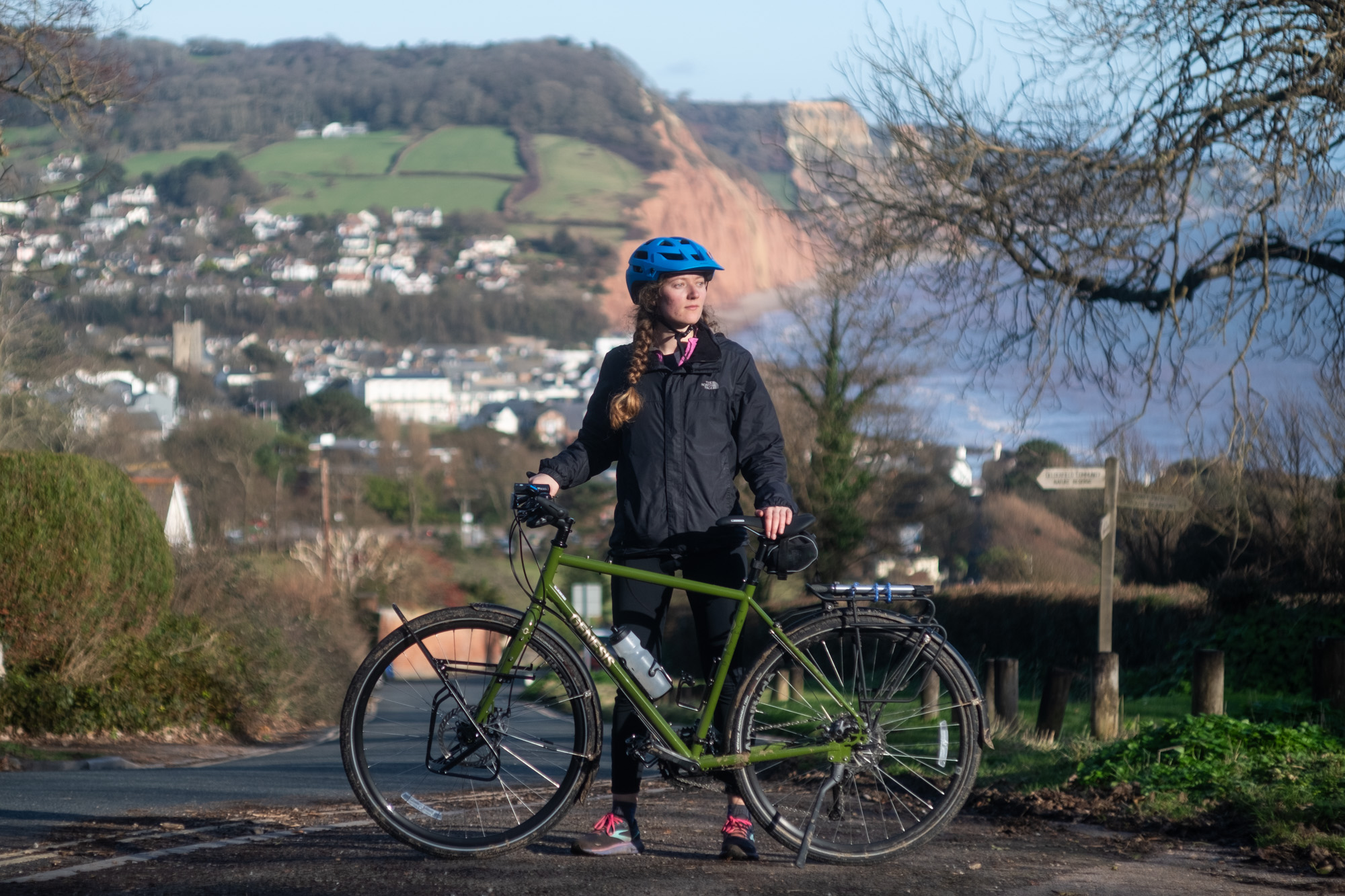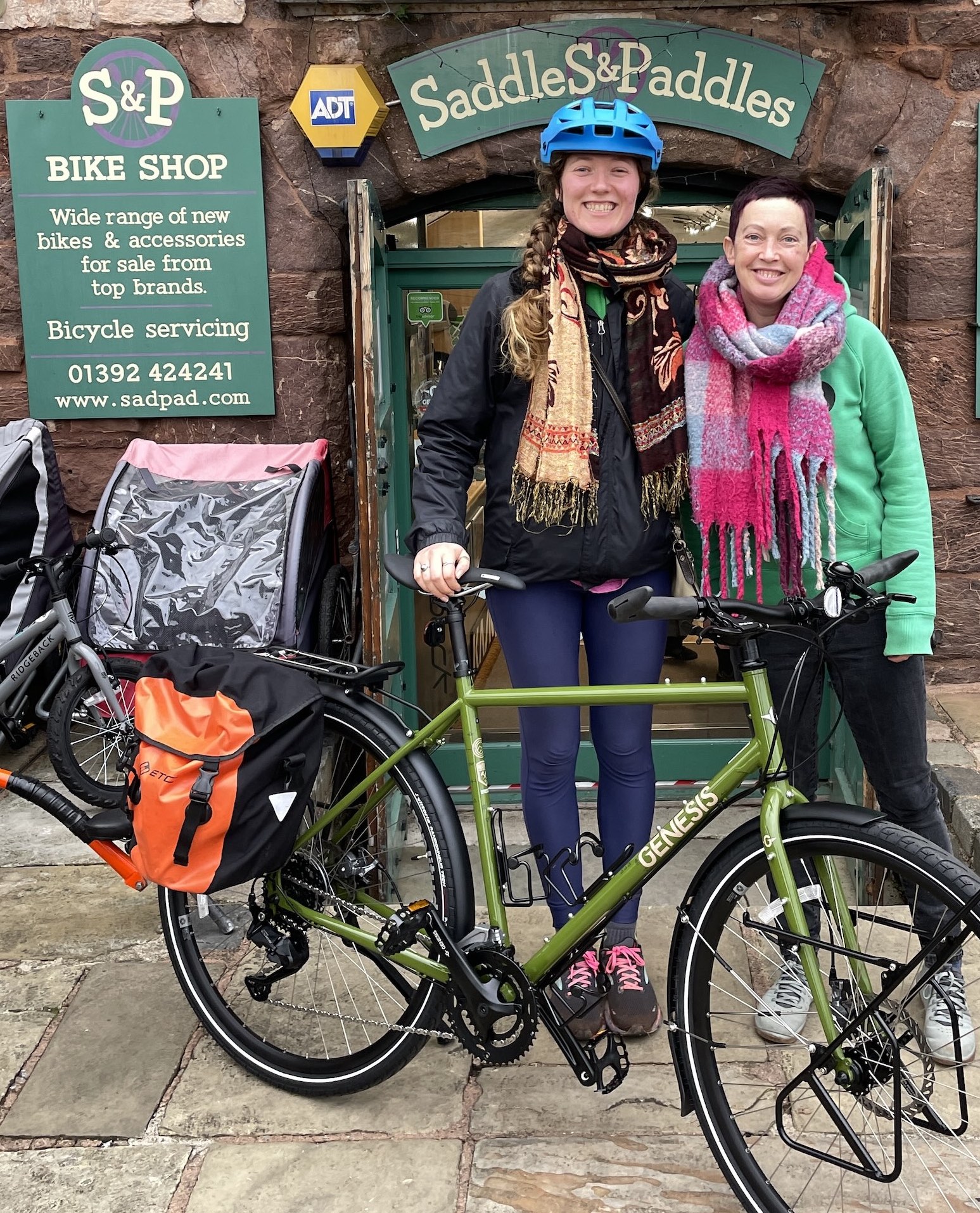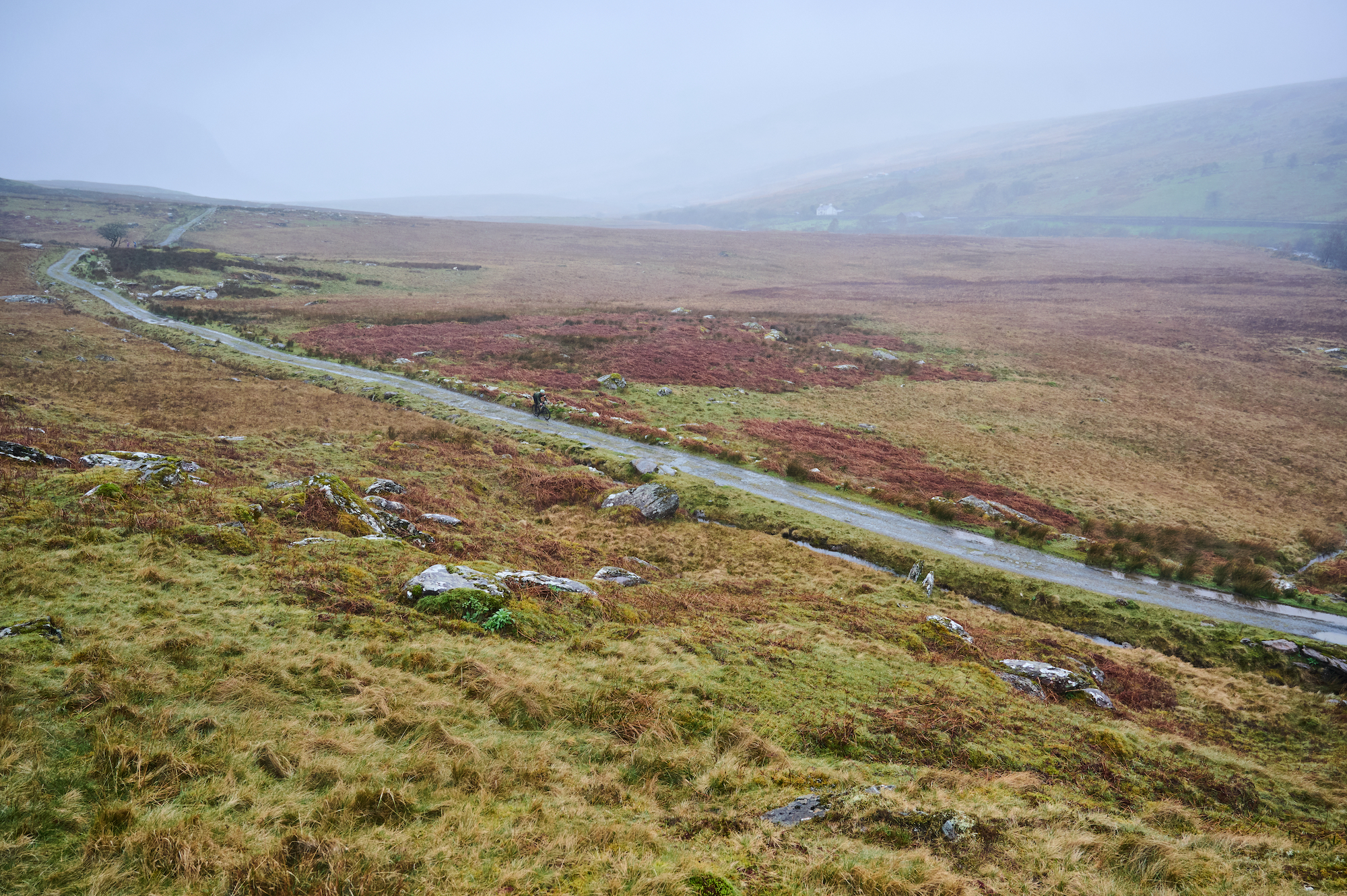I loved cycling but feared for my safety; 2,000km of cycle paths made the epic Tour de Farm possible
As the clock ticks down towards Veronica White’s grand départ for a unique ‘Tour de Farms’, she tells Rob Kemp why more women need to get into cycling, and how the National Cycling Network transformed things for her…


“Nobody starts a PhD thinking it’s going to be easy… so why not throw a 2000-kilometre cycle ride into the mix,” exclaims Veronica White as she finishes the final touches to her most ambitious cycling adventure so far.
Having completed her master's degree studies at the University of Exeter’s Cornwall campus - nestled on the southwestern tip of the UK - in 2023, then cycling 240-km from Exeter to Penryn for her graduation ceremony last summer, Veronica is now taking to two wheels to complete a remarkable tour of England.
“I had a wild idea for my PhD. I knew I wanted my research to involve people in farming communities, but – recognising the diversity of farming types across the UK – I knew I couldn't focus on just one region for my data collection. How could I speak to farmers across the whole country?” That’s where the Farming Futures CycleTour comes in.
Veronica’s PhD research will explore visions for the future of farming and food production in England - by bike. A Genesis Tour De Fer to be precise. For her fieldwork, Veronica’s particularly interested in the perspectives of women living and working on farms. So she’s embarking on a research and interview tour that involves cycling from Land’s End in Cornwall to the Scottish border near Carlisle.
“Along the way, I'll stop to interview women in farming communities, to learn about their visions for the future of farming and food production in England. My original plan was to stop at a different farm each night, but my supervisor quickly shut that down," she laughs. “Instead, I’ll cycle for a week and then spend a week conducting interviews and observations in a specific area before moving on.”
Veronica’s passion for pedalling was nurtured in the Netherlands. “My family didn’t have a car, so cycling was our primary mode of transport.”
From the age of 11, Veronica cycled to school daily, covering around four kilometres each way. The vast majority of her journey was on completely protected cycle paths, passing through fields with no cars in sight. But when she moved to the UK to start university, she found herself dealing with a very different culture when it came to cycling.
Get The Leadout Newsletter
The latest race content, interviews, features, reviews and expert buying guides, direct to your inbox!
“I brought my bike with me," she recalls, "but I was scared of cycling on the roads and the hills. The infrastructure just wasn’t the same."
The transition from the Netherlands' cycle-friendly environment to the UK's disjointed cycle network was challenging. Norwich, where she attended university, branded itself as cycle-friendly, yet in practice, it was a different story. "I'd try to get out to the big supermarket, and suddenly, the cycle path would just dead-end into a massive road. I’d think, ‘Now what?’"

It wasn't until starting her PhD in Exeter that Veronica discovered the National Cycle Network (NCN) and the benefits it could bring to those nervous about cycling in the UK. “I was using routes like the Exe Estuary Trail without realizing they were part of this larger network. When I started looking at the NCN map, it was like, ‘Wow, there are so many more places I can explore!’"
“Some NCN routes are entirely traffic-free, like the Tarka Trail and the Granite Way, while others use quiet country lanes. But there were times, when my boyfriend and I cycled from Exeter to Falmouth for my graduation, where even on NCN routes, we didn't always feel safe. Cars had space to overtake, but their speed made it intimidating." Often, the couple found themselves rerouting via smaller lanes where, despite the narrower space, they felt safer.

Women and wheels
Veronica is acutely aware of the barriers that prevent more women from taking up cycling. "Safe, connected infrastructure is fundamental," she insists.
But visibility and representation matter, too as Veronica points out when recalling the purchase of her bike from Saddles & Paddles, a female-owned bike shop in Exeter. "It was the first time I'd been served by a woman in a bike shop. We joked about wanting a ‘pretty’ bike, and it felt refreshing to have that conversation without judgment. It’s such a small thing, but it made a big difference."
She also feels that her experience in the male-dominated world of cycling parallels the challenges faced by women in farming. "I recently took a cycle maintenance course in Bristol and was the only woman there, apart from one of the instructors. It reminded me why I want to focus on women in farming - both industries have similar gender imbalances. One day, I’d love to do an interview with a female bike shop owner and a female farmer to compare their experiences."
"I’ll be speaking with women who work on farms, whether as farmers, farm workers, or family members involved in agricultural life. I’ll also be reflecting on my own experience of cycling through these farmed landscapes, considering how climate change might affect them in the future. I think I’ll be relying heavily on voice notes as I ride, then jot down thoughts in my field journal each evening."
Veronica is also working on promoting her expedition and drumming up support and interest around the country as she rides. “I’ve been recording videos and taking photos on cycling trips I’ve done here and overseas. I’ll use my blog and social media to document my journey and experiences. "
Routes to safer cycling
The National Cycle Network offers many scenic, traffic-free routes, including disused railway trails, canal paths, and forest tracks - just look for the blue signs,” says Sophie Gordon, campaigns manager at CyclingUK. “For local options, check if your council provides cycle maps.” Online tools can also help you find quiet routes:
Komoot specializes in route planning for road, mountain, and gravel biking. It offers detailed maps, turn-by-turn navigation, and offline access. https://www.komoot.com/
Ride with GPS US-based app that provides comprehensive planning, elevation data, voice navigation, and offline maps https://ridewithgps.com/
Strava features a global heatmap of popular routes, route planning, and a community for discovering new rides https://www.strava.com/
Bikemap has a vast database of user-generated routes, including off-road trails, with navigation and elevation profiles https://www.bikemap.net/
CycleStreets focuses on UK routes, offering options for fastest, balanced, or quietest rides, with integrated mapping services https://www.cyclestreets.net/
She’s also keen to engage with the public along the way. "If any women want to join me for parts of my ride or if there are female farmers interested in being interviewed, I’d love to hear from them."
Veronica’s trip will take her from Land’s End through Cornwall, Devon, Dorset, and up toward London, then east to Norwich before heading north along the coast through Lincolnshire, the Yorkshire Moors, Cumbria, and finally to the Scottish border. "I start in mid-April and aim to finish by early July - 12 weeks in total, alternating between cycling and data collection weeks."
Veronica’s also already aware of the emotional highs and lows such a demanding journey could conjure up. "Last month, I had a bout of really severe anxiety about the trip. I posted about it in a Facebook cycling group, asking for advice, and the response was incredibly reassuring. It reminded me how valuable a supportive community can be. Social media has been a great way to connect with and learn from other women embarking on similar adventures."
As she sets off, Veronica hopes her journey will inspire more women to take up cycling and spark meaningful conversations about the future of farming. "At the end of the day, it’s about making these spaces more inclusive - whether that’s on the road or in the fields."

Thank you for reading 20 articles this month* Join now for unlimited access
Enjoy your first month for just £1 / $1 / €1
*Read 5 free articles per month without a subscription

Join now for unlimited access
Try first month for just £1 / $1 / €1

Rob Kemp is a London-based freelance journalist with 30 years of experience covering health and fitness, nutrition and sports sciences for a range of cycling, running, football and fitness publications and websites. His work also appears in the national press and he's the author of six non-fiction books. His favourite cycling routes include anything along the Dorset coast, Wye Valley or the Thames, with a pub at the finish.
You must confirm your public display name before commenting
Please logout and then login again, you will then be prompted to enter your display name.